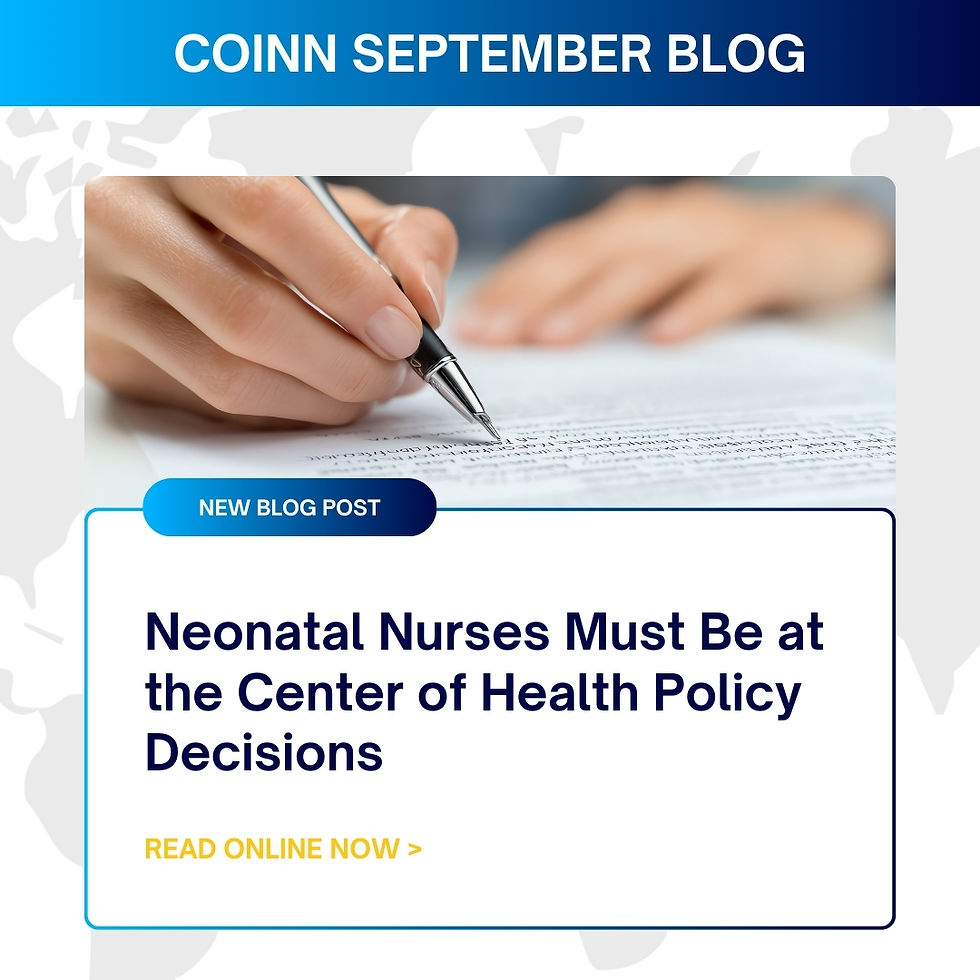The Health Argument for Climate Action, with a Special Focus on Maternal, Newborn, Child and Adolescent Health
- nelwa2006
- Nov 14, 2024
- 2 min read
Climate crisis is a health crisis, and children are uniquely vulnerable. This event at COP29 on 12 November will highlight the crucial interconnection between health and climate change, with a focus on child health and well-being, and the importance of the health co-benefits of climate action. It will feature the COP29 Special Report on Climate Change and Health, and UNICEF's A Threat to Progress report on the impact of climate change on child health and well-being.

Increased flooding fueled by a changing climate puts children and their family's health at risk. UNICEF and the U.S. EPA are working together to educate people about the disproportionate impact of climate change on children's health and well-being.
Healthy Tomorrows: How the U.S. Government addresses children's environmental health
Grace Robiou, Director of the U.S. EPA's Office of Children's Health Protection, and Leith States, Chief Medical Officer at the U.S. Department of Health and Human Services, discuss the origins, goals and operations of the U.S. President's Task Force on Environmental Health and Safety Risks to Children.
EVENTS

25 NOV | ONLINE
Carrying out a blood lead level survey
The Partnership for Lead-Free Future hosts this webinar to share guidance on how to carry out a blood lead level survey. This is the second webinar in the Lead-Free Future for Every Child series. It will share perspectives from different regions of the world, including recent findings from Bhutan's first national blood lead level survey.

27 NOV | ONLINE
Generation Plastic: Unpacking the impact of plastic on children's health
This webinar explores UNICEF's new report, Generation Plastic: Unpacking the Impact of Plastic on Children’s Health. The report examines the extent of the plastic problem, its health impacts on children and offers recommendations to protect children.
RESOURCES

Young People’s Guide to Climate Change and Children’s Health
The Young Climate Activists toolkit, created by youth, offers clear, accessible information on climate action to equip youth for informed, impactful participation. It provides a summary of information on climate-related hazards, including extreme heat, wildfires, droughts, floods and storms, ecosystem changes and air pollution.

National Blood Lead Level Survey Bhutan 2024
In Bhutan's first national blood lead level survey, 76 per cent of children showed blood lead levels at or above 3.5 micrograms per deciliter, with 86 per cent of children in monastic institutions also affected—revealing widespread lead exposure across all districts and demographics. View details

Children's Environmental Health Assessment Report of Cambodia
The Royal Government of Cambodia, with the technical support of UNICEF, has conducted the first national children's environmental health assessment to identify priority areas for research, policy actions, regulations and institutional capacity building in the country. The report spotlight risks to children, including exposure to lead, mercury and household air pollution. View details

Clean Air, Healthy Children: An Agenda for Action
This policy brief gives an overview of household air pollution, traffic-related air pollution, waste-related air pollution, industrial air pollution, wildfire and landscape fire smoke, sand and dust storms and secondhand smoke, and recommended actions for governments, caregivers, private sector, health sector, civil society and young people. View details







Comments